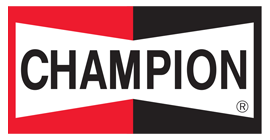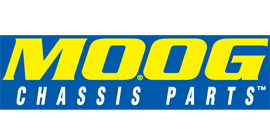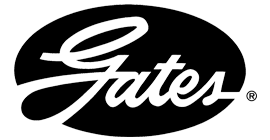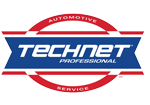
AUTONET TV
Archive for January 2022That Squeal is Telling You Something (What Causes Squealing While Steering)Posted January 30, 2022 8:44 AMIf you hear a squealing noise when you turn your vehicle, it's trying to tell you something is wrong. After all, it never made that noise before, right? The sound you hear may becoming from a few sources. Let's take a look (or a listen) to some of the possibilities. First, you almost certainly have power steering in your vehicle. Without power steering, you practically have to have arms like Arnold Schwarzenegger to turn, so automakers have technology to assist your steering, either mechanically or electrically. For a long time, the most common power steering has been hydraulic, using a belt to supply power from the engine that turns a power steering pump full of a fluid that helps you steer. Sometimes that fluid gets low because of a leak or some other problem. The belt could wear out and start squeaking, and you might feel the steering start to become harder. Your service repair facility can figure out the problem and offer some solutions. Another cause could be in your suspension. Some components may not be getting lubricated like they should. Or you may be hearing your tires squealing when you are turning. Properly working steering is a huge safety factor for your vehicle's operation. Your steering affects handling, vital to your well-being as well as that of drivers around you. So take your vehicle over to your repair facility and have it checked out. You'll be doing everyone on the road—including yourself—a big favor by listening to your vehicle. When it comes to steering, silence really is golden. Get that squealing repaired and get back to safe driving. TJ's Auto Center Inc. Bad Vibes (Disc brake rotor problems)Posted January 23, 2022 10:38 AMIf you were to name the most important safety feature on your vehicle right now, what would your answer be? A lot of driving experts would agree that it’s your brakes. Most newer vehicles use a well-engineered and efficient style of brakes called disc brakes. The name disc brakes comes from one of the components: a disc attached to the wheel hub that is squeezed by parts called calipers. If you’ve ever ridden a bicycle with hand brakes, you probably have seen how they squeeze against the rim of the bike wheel to stop the bike. It’s similar to the way your vehicle’s calipers squeeze against the disc rotor, with added parts called brake pads attached to the calipers that are what create the friction and stop your vehicle. Here’s why disc brakes need regular maintenance. Over time, that friction creates wear and tear on the brake pads and the rotors, and you’ll start to see the signs. Your brakes may have one of the 3 “S” sounds: squeaking, squealing, or scraping. The sound is usually the first sign of brake pad wear which can lead to rotor damage. Soon you may notice a pulsating or vibration when you brake. That’s because your once smooth and straight rotor disc is warping from the heat generated from friction. Or it may be due to wear. Eventually, your brakes will take a longer distance to stop your vehicle, and the rotors can have grooves carved into them. When you start noticing any of these signs, it’s a good idea to have them inspected by a trained technician. They will measure the rotor thickness, check wear patterns for grooves and heat discoloration, and see how much of the brake pads remain. They will also check to make sure all brake components are moving freely, check your brake fluid, and look for corrosion. Most vehicle manufacturers require worn or damaged rotors to be replaced, not resurfaced. It’s all part of a complete brake job, replacing pads and the brake hardware parts along with the rotors. It reduces the chance of premature failure. How often you will need your brakes serviced depends on the manufacturer’s recommendations, your driving habits, and the environment you live in. Your service facility can recommend the best replacement parts based on those factors. Regular maintenance and attention are vital for keeping your brakes performing like they are designed to. Remember, your brakes are your vehicle’s most important safety feature. TJ's Auto Center Inc. Move it or Lose It (Dormant Vehicles)Posted January 16, 2022 7:29 AMWhen it comes to your vehicle, driving it too much can cause some issues. But what about not driving a vehicle enough? That has consequences as well. Here are a few things that can happen if a vehicle isn't driven enough. When the engine doesn't operate, the oil isn't lubricating. That means some mechanisms that need periodic lubrication aren't getting it. And oil that sits around breaks down over time. In fact, some experts say you should change oil more often if your vehicle sits in the driveway than if you drive it regularly. You've heard that expression, "Take it on the highway and blow out the engine.” Well, carbon buildup used to be a problem in older vehicles. But the real culprit these days is moisture that builds up from combustion if your vehicle never gets hot enough to burn it off. That water vapor can mix with oil and cause sludge to form. There are many vehicle systems (battery, exhaust system, engine seals, etc.) that benefit from driving your vehicle at its optimal operating temperature for a while. Spark plugs can deteriorate unless they are fired up. The gas tank can rust from the inside if the metal is exposed from not having fuel in it. Rodents and insects may see a sitting vehicle as a luxury hotel. Brakes can rust after sitting around without being used. Seals and gaskets can dry out. One wise thing to do is check the operating manual. Some will spell out a maintenance schedule for vehicles that aren't driven regularly. One suggestion? Discuss your vehicle's maintenance with your service advisor. Let him or her know how often you drive the vehicle and what you use it for. Then, you can come up with a maintenance schedule tailored for you, one that might not be covered in the owner's manual. If you do have a vehicle that's been sitting around for a long time, it may be wise to have it towed to your service facility rather than trying to drive it with brakes that may not work, spark plugs that may not fire reliably and other systems that may compromise your safety and those of others on the road. You may think it's great to have a low-mileage vehicle that you've barely driven, but a complicated, sophisticated machine such as a car, SUV or truck needs regular attention to keep it running safely… and reliably. TJ's Auto Center Inc. Before You Buy that Used Vehicle (Having a Used Car Inspected Before Buying)Posted January 9, 2022 10:01 AMLet's face it. New vehicles are expensive, so finding a good used one can save drivers a lot of money. It's tempting to look through ads, find a private seller who has what you're looking for and pay a price you think is a great deal. But when you go over to look at a used car, do you really know what to look for to uncover potential problems with it? The answer is probably no. Used cars can look great on the outside, maybe even have lustrous paint and a super clean interior. But is it possible that vehicle's been in an accident? Does it have electrical problems you can't detect easily? Is any fluid leaking that you don't know about? Think about it. You are about to spend thousands of dollars for a complex machine and you're considering judging its condition without much expertise. That's why it makes sense to have a qualified technician inspect any used vehicle you're considering buying. Many vehicle repair facilities will do it for around $100-$200. They'll check to see what's working right and what's not working. They'll check for leaks and how strong the battery is; they'll look for signs it's been in an accident or has been painted. They'll look in places you'd find inaccessible, and they'll take it for a test drive to see what noises, vibrations and smells might give clues to any major problems. An inspection usually takes about an hour. You should have an inspection done by a technician you know and trust. They'll have your best interests in mind. And the inspection should be done before you start negotiating a price with the seller. It's money well spent to either give you peace of mind that you're getting a good vehicle or steer you away from a lemon. One sign a used vehicle isn't a good deal? If the buyer refuses to let you have it inspected. That says just about everything that needs to be said. TJ's Auto Center Inc. Singing a Different Tune (Up) (Tune Ups)Posted January 2, 2022 8:39 AMEngines required a lot more maintenance in earlier times. You'd have to have your spark plugs, wires, rotors, caps, distributor points, fuel and air filters changed periodically. There were mechanical adjustments of a vehicle's timing, dwell, spark gap and idle mixture, too. Unless you like to tinker with old cars, a lot of those terms won't mean much to you. That service was called a "tune up" back then, and you can see why. But now, computers have reduced the number of maintenance items, and a tune up is a whole lot different than it used to be. In fact, in some vehicle service facilities, that term is also a thing of the past. A tune up of today would more accurately be called simply periodic maintenance. Now, most vehicles still have spark plugs and wires, fuel filters, air filters and PCV valves, and they should be inspected tested and/or replaced at regular intervals. Your vehicle's manufacturer has made recommendations on how often that should be. But it depends on your driving habits. Do you regularly tow a trailer? Do you drive on dusty roads often? Are you driving mostly stop and go in the city? Depending on your answers, to those maintenance intervals might have to be more frequent. Your service advisor will likely remind you about those "must check" items such as spark plugs and wires, air filter and oxygen sensor. And now that the old-fashioned tune ups don't require you to take your vehicle in for maintenance as often, you can get the same benefit from scheduled oil changes or tire rotations. When your vehicle is in for those, a technician can keep an eye on your other systems (fuel, emissions, ignition) to make sure they are operating correctly. One thing to remember. When you take your vehicle in for regular service or a specific issue, don't ever hesitate to ask you service advisor to explain what's being done and why. Hey, "In Sync" may have been a boy band of an earlier era, but it's always good for you and your service advisor to be "in sync" when it comes to what maintenance is good for your vehicle. TJ's Auto Center Inc. I Had No Idea! (Four Things You Didn't Know About Vehicles)Posted January 1, 2022 8:51 AMBet you didn't know: Some of the earliest rearview mirrors were marketed as "Cop Spotters" so drivers would know when police were following them. Who wants a ticket, anyway? According to eBay Motors, Elmer Berger first patented a rearview mirror that was mounted on the front fenders, on the spare tire secured to the side of the car of at the top of the driver's door frame. About 80 percent of your vehicle is recyclable. So says The Balance. That means four-fifths of most vehicles can be recycled. Much of that recycling is done by automotive aftermarket recyclers. Between the U.S and Canada, they reclaim enough steel to produce 13 million new vehicles. The man who invented the first modern cruise control couldn't even drive a car because he was blind! His name, says Smithsonian.com, was Ralph Teetor. Blinded at a young age by a knife accident, Teetor was inspired to create a speed control by a couple of things. One, the U.S. imposed a mandatory 35 mph/55 kph during World War II to conserve fuel and tire rubber, and Teetor wanted drivers to go a safe and steady speed. Plus, a chauffeur who drove him around used to randomly slow down and speed up which irritated Teetor. So he invented a speed control to encourage drivers to drive at a more constant and safer speed. The first grooved tires were invented in 1904 by Continental. But that was a big improvement over the very first "tires" which were actually metal hoops that made riding in the first cars a pretty rough experience. The first rubber tires were solid rubber, not inflatable like today's tires. Things have come a long way. Modern tires are made with sophisticated rubber compounds that can deal with heat and cold. Plus their tread patterns help drivers get better traction on wet roads when it storms. Still, it's important to make sure yours have enough tread and are properly inflated for maximum safety and performance. Quite frankly, there's a lot we don't understand about the vehicles we drive. They're much more complicated than the old horse and buggy that preceded them. Leave your vehicle's maintenance and service to highly trained technicians who DO understand how to maintain, diagnose and repair today's modern, sophisticated vehicles. TJ's Auto Center Inc. | ||
SearchArchiveJune 2010 (71)July 2010 (4) August 2010 (4) September 2010 (4) October 2010 (4) November 2010 (4) December 2010 (4) January 2011 (4) February 2011 (4) March 2011 (4) April 2011 (5) May 2011 (5) June 2011 (4) July 2011 (4) August 2011 (5) September 2011 (4) October 2011 (4) November 2011 (5) December 2011 (4) January 2012 (5) February 2012 (2) March 2012 (5) April 2012 (4) May 2012 (5) June 2012 (4) July 2012 (5) August 2012 (4) September 2012 (4) November 2012 (1) December 2012 (2) March 2013 (1) April 2013 (3) May 2013 (2) October 2013 (5) November 2013 (2) January 2014 (2) February 2014 (3) March 2014 (1) July 2014 (4) August 2014 (7) September 2014 (4) October 2014 (5) November 2014 (4) December 2014 (5) January 2015 (4) February 2015 (4) March 2015 (4) April 2015 (4) May 2015 (3) June 2015 (5) July 2015 (2) September 2015 (2) October 2015 (4) November 2015 (5) December 2015 (2) February 2016 (2) March 2016 (4) April 2016 (4) May 2016 (5) June 2016 (4) July 2016 (5) August 2016 (4) September 2016 (4) October 2016 (5) November 2016 (4) December 2016 (4) January 2017 (5) February 2017 (4) March 2017 (4) April 2017 (3) May 2017 (5) June 2017 (4) July 2017 (5) August 2017 (4) September 2017 (3) October 2017 (5) November 2017 (4) December 2017 (3) January 2018 (5) February 2018 (4) March 2018 (4) April 2018 (4) May 2018 (4) June 2018 (4) July 2018 (5) August 2018 (4) September 2018 (5) October 2018 (3) March 2019 (4) May 2019 (2) June 2019 (5) July 2019 (2) August 2019 (2) September 2019 (4) October 2019 (5) November 2019 (4) December 2019 (5) January 2020 (5) February 2020 (4) March 2020 (5) April 2020 (1) May 2020 (2) June 2020 (1) July 2020 (1) August 2020 (5) September 2020 (4) October 2020 (4) November 2020 (5) December 2020 (4) January 2021 (6) February 2021 (4) March 2021 (4) April 2021 (4) May 2021 (5) June 2021 (4) July 2021 (4) August 2021 (5) September 2021 (4) October 2021 (5) November 2021 (4) December 2021 (4) January 2022 (6) February 2022 (4) March 2022 (4) April 2022 (4) May 2022 (5) June 2022 (4) July 2022 (5) September 2022 (4) October 2022 (5) November 2022 (4) December 2022 (4) January 2023 (5) February 2023 (4) March 2023 (4) April 2023 (5) May 2023 (4) June 2023 (4) July 2023 (5) August 2023 (4) September 2023 (3) October 2023 (2) January 2024 (1) February 2024 (4) | CategoriesAir Conditioning (17)Alignment (18)Alternator (6)Auto Safety (6)Automotive News (10)Battery (20)Brake Service (4)Brakes (22)Cabin Air Filter (9)Check Engine Light (7)Cooling System (21)Customer Detective Work (1)Dashboard (3)Diagnostics (5)Diesel Maintenance (1)Differential Service (4)Drive Train (10)Emergency Items (1)Engine Air Filter (3)Exhaust (13)Fluids (17)Fuel Economy (10)Fuel Pump (1)Fuel Saving Tip: Slow Down (2)Fuel System (49)Headlamps (7)Inspection (11)Keys to a long lasting vehicle (4)Maintenance (62)Monitoring System (3)Oil Change (7)Older Vehicles (5)Parts (8)PCV Valve (2)Safe Driving (1)Safety (6)Serpentine Belt (7)Service Intervals (10)Service Standards (14)Shocks & Struts (9)Shocks and Struts (2)Spark Plugs (2)Steering (15)Suspension (3)Timing Belt (6)Tire Pressure Monitoring System (1)Tire Rotation and Balancing (4)Tires (10)Tires and Wheels (44)TPMS (3)Transfer Case Service (1)Transmission (11)Trip Inspection (4)Warranty (2)Water Pump (1)What Customers Should Know (81)Wheel Bearings (2)Windshield Wipers (9)Winter Prep (8)Winter Tires (1) | |

OUR REVIEWS


Howard L.The business always does a great job and takes care of him. They are very polite.












